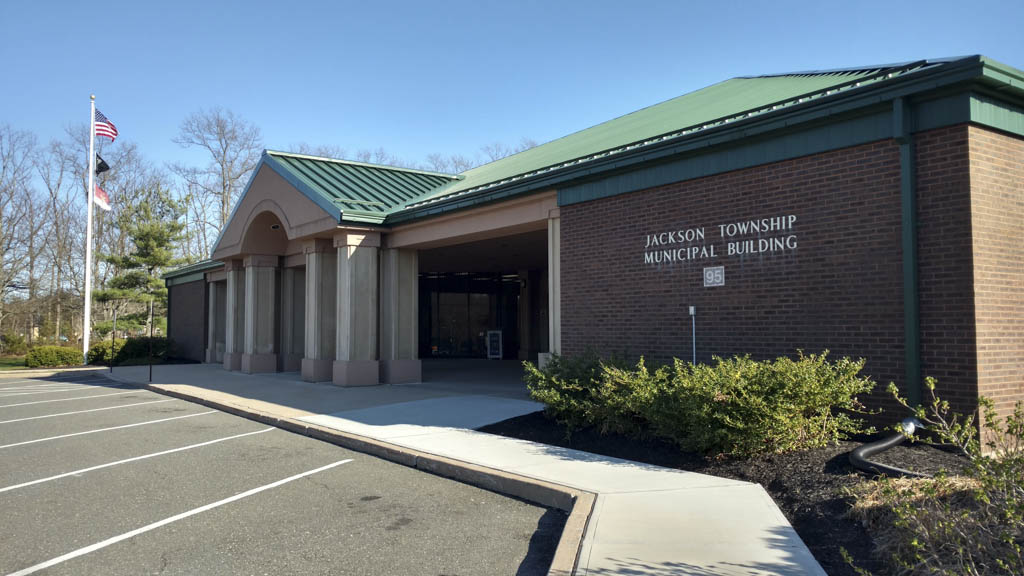JACKSON – An organization which advocates for the interests of the Orthodox Jewish community has agreed to a temporary suspension in litigation it has filed against Jackson Township.
The move was announced during the Dec. 13 meeting of the Jackson Township Council when municipal officials signed off on an agreement that accomplishes two things.
First, the agreement grants Jackson’s Orthodox Jewish community the right to seek permission from utility companies to establish religious boundaries by placing markers on utility poles.
Second, the agreement establishes a 90-day discussion period regarding litigation that has been filed against the municipality.
Actions taken by the council this year led to the filing of two lawsuits against the township: Agudath Israel of America and WR Property, LLC, v. Township of Jackson, and Oros Bais Yaakov High School v. Jackson Township and Jackson Township Zoning Board of Adjustment.
Agudath Israel of America, which advocates for the interests of the Orthodox Jewish community, initiated legal action after the council’s adoption in March of an ordinance that prohibits the construction of dormitories in all zoning districts in Jackson.
Although no dormitories have been proposed, officials said they were taking the action because dormitories were not previously addressed in the municipal code.
Agudath Israel of America has asserted that the ordinance was enacted to prevent schools for Orthodox Jewish students, and dormitories to house those students, from being constructed in Jackson. The organization claims the ban violates federal law.
The organization amended its complaint after the council took action that members of the Orthodox Jewish community asserted would prevent the establishment of an eruv – an area enclosed by a wire boundary that symbolically extends the private domain of Jewish households into public areas, permitting activities within it that are normally forbidden in public on the Sabbath.
“The township has been involved in a fair amount of litigation. We have lawsuits pending on a variety of topics and there are also investigations by the Department of Justice and the Attorney General’s office pertaining to these land use issues in town,” Township Attorney Jean Cipriani said during the council’s Dec. 13 meeting.
In regard to the subject of the eruv, the council passed a resolution which states that “permission and authority are hereby granted for the placement of (items) on poles erected by utilities that have the lawful right to maintain the poles within the public right-of-way in Jackson, provided the utility company consents to such placement … ”
In addition, the agreement between the parties places a three-month hold on the ongoing litigation.
The agreement “puts a standstill on the litigation during a three-month period and the only thing it obligates the township to do regarding the litigation is to sit down with the plaintiff’s counsel and planners from both sides and discuss proposals on an ordinance pertaining to schools and dormitories,” Cipriani said.
The agreement “does not change any existing ordinances, but it does say that during this 90-day period we are going to try and discuss in a calm, good faith manner what proposals may be satisfactory to the township as well as to the plaintiffs. If there was going to be a change (in any ordinance), it would have to come back to the governing body and be done in public,” Cipriani said.
The attorney said the agreement does not change Jackson’s right of way ordinance, which has been referred to by some individuals as the “eruv ban” law. The right of way ordinance grants municipal officials authority to keep streets free from obstructions such as portable basketball hoops and portable hockey nets.
Cipriani said the resolution passed by the council on Dec. 13 “regarding the eruv wires does not change the township’s right of way ordinance, but it does provide municipal consent for residents who want to contact utility companies.”
“At this point I see no other option,” Councilman Barry Calogero said. “This is a good opportunity to negotiate and see what we are going to do for the future. (The agreement) does not change the zoning at all, it only allows for an eruv on permitted (utility) poles, so I vote yes.”
Councilman Scott Martin said he wished the agreement was “just about eruvs.”
“I have no problems with eruvs being placed on already existing infrastructure, like telephone poles. There are already several wires (on the poles and) adding an extra wire does nothing to affect anybody’s quality of life, it does nothing to depreciate the value of anyone’s home, and certainly it is not an eyesore because there are several wires there already and adding one is not a big deal,” Martin said.
“The problem is the portion of the (agreement) allowing discussion about schools with dorms,” Martin said, adding that when he moved to Jackson it was because of the way “the town is set up” and “not wanting to disturb the beauty” of the community.
“I cannot envision myself being in favor of a school with dorms. Everybody has a right to education, there is no issue with that. We have plenty of land and if somebody wanted to build a school to educate their children they can do that. I have no issue with that,” Martin said.
The councilman said the issue is dormitories and he added, “I believe once you get one, there is going to be a second and a third and it will be more and more difficult to say no once one gets going.”
Council President Ken Bressi, Council Vice President Ann Updegrave, Councilman Rob Nixon and Calogero voted yes on a motion to approve the agreement regarding eruvs and additional discussion of the other issues with the litigants. Martin voted no on the motion.

